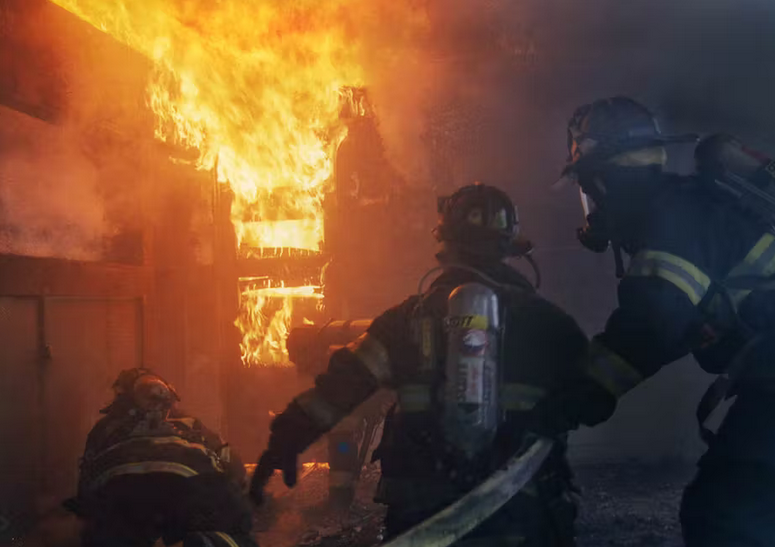As a firefighter, I’ve experienced the unique challenges and pressures that come with the job. But what happens when those challenges become overwhelming? When the physical and emotional tolls add up, leading to burnout? Here’s what I’ve learned from my own experience with burnout and what helps mitigate it.
Recognizing the Signs
Burnout doesn’t hit all at once; it creeps up on you. For me, it started with not getting enough sleep or not sleeping well. Even when I was away from work, I felt exhausted. The thought of my next shift filled me with anxiety, stress, and even fear. My body began to bear the brunt of it—joint pain, headaches, stomach issues, and other physical discomforts. Mentally, I struggled to focus, and emotionally, I felt like I was on a rollercoaster, swinging from anger to sadness to loneliness.
I started to notice a loss of appetite, and my weight fluctuated. Sometimes, I turned to substances to help me sleep, boost my energy, or simply find a bit of happiness. These were all signs that something was wrong, but it took me a while to realize I was burnt out.
The Remedy: Time Off
One of the most crucial remedies for burnout is simple but often overlooked: time off. People might suggest talking about it, seeking financial help, or even meeting with a pastor. While these can be beneficial, nothing replaces the healing power of taking time away from the job.
For a long time, I hesitated to take time off. I felt like I owed my career everything. The fire service had given me a stable life, a house, a car, and opportunities. I love my job, and I didn’t want to seem ungrateful or neglectful. But a few years ago, I started to notice a change in myself. I was getting frustrated at things I used to brush off and becoming snippy when I usually had a cool head. That’s when I realized I was burnt out.
A Call for Compassion
In this line of work, time off is essential. Spending time with family, getting away for a few days, or even taking an extra night to relax can make a world of difference. The job will still be there when you get back, and it will continue long after you’re gone.
I know some higher-ups might not like hearing this, especially in departments facing staff shortages. But it’s time to acknowledge that firefighters and first responders are human. We all have lives outside of work, and we need to take care of ourselves to continue serving our communities effectively.
Burnout is real, and it can have serious consequences if not addressed. Let’s prioritize time off and mental health in the fire service, ensuring that we all stay strong and ready to serve.
Tags: Firefighter Burnout, First Responders, Mental Health, Fire Service, Work-Life Balance, Stress Relief, Occupational Stress, Mental Health Awareness, Firefighter Wellness, Taking Time Off
Meta Description: Discover the emotional toll of burnout in the fire service and the importance of taking time off for firefighters and first responders. A personal story of overcoming stress and finding balance.
As a firefighter, I’ve experienced the unique challenges and pressures that come with the job. But what happens when those challenges become overwhelming? When the physical and emotional tolls add up, leading to burnout? Here’s what I’ve learned from my own experience with burnout and what helps mitigate it.
Recognizing the Signs
Burnout doesn’t hit all at once… it creeps up on you. For me, it started with not getting enough sleep or not sleeping well. Even when I was away from work, I felt exhausted. The thought of my next shift filled me with anxiety, stress, and even fear. My body began to bear the brunt of it joint pain, headaches, stomach issues, and other physical discomforts. Mentally, I struggled to focus, and emotionally, I felt like I was on a rollercoaster, swinging from anger to sadness to loneliness. I started to notice a loss of appetite, and my weight fluctuated. These were all signs that something was wrong, but it took me a while to realize I was burnt out.
The Remedy: Time Off!!!!
One of the most crucial remedies for burnout is simple but often overlooked…. TIME OFF. People might suggest talking about it, seeking rasies, or even meeting with a pastor. While these can be beneficial, nothing replaces the healing power of taking time away from the job.
For a long time, I hesitated to take time off. I felt like I owed my career everything. The fire service had given me a stable life, a house, a car, and opportunities. I love my job, and I didn’t want to seem ungrateful or neglectful. But a few years ago, I started to notice a change in myself. I was getting frustrated at things I used to brush off and becoming agitated when I’m typically understanding of the decisions made. That’s when I realized I was burnt out.
A Call for Compassion
In this line of work, time off is essential. Spending time with family, getting away for a few days, or even taking an extra night to relax can make a world of difference. The job will still be there when you get back.
I know some higher ups might not like hearing this, especially in departments facing staff shortages. But it’s time to acknowledge that firefighters and first responders are human and TIRED. We all have lives outside of work, and we need to take care of ourselves to continue serving our communities effectively.
Burnout is real, and it can have serious consequences if not addressed. Let’s prioritize time off and mental health in the fire service, ensuring that we are all strong enough to serve our local community.

